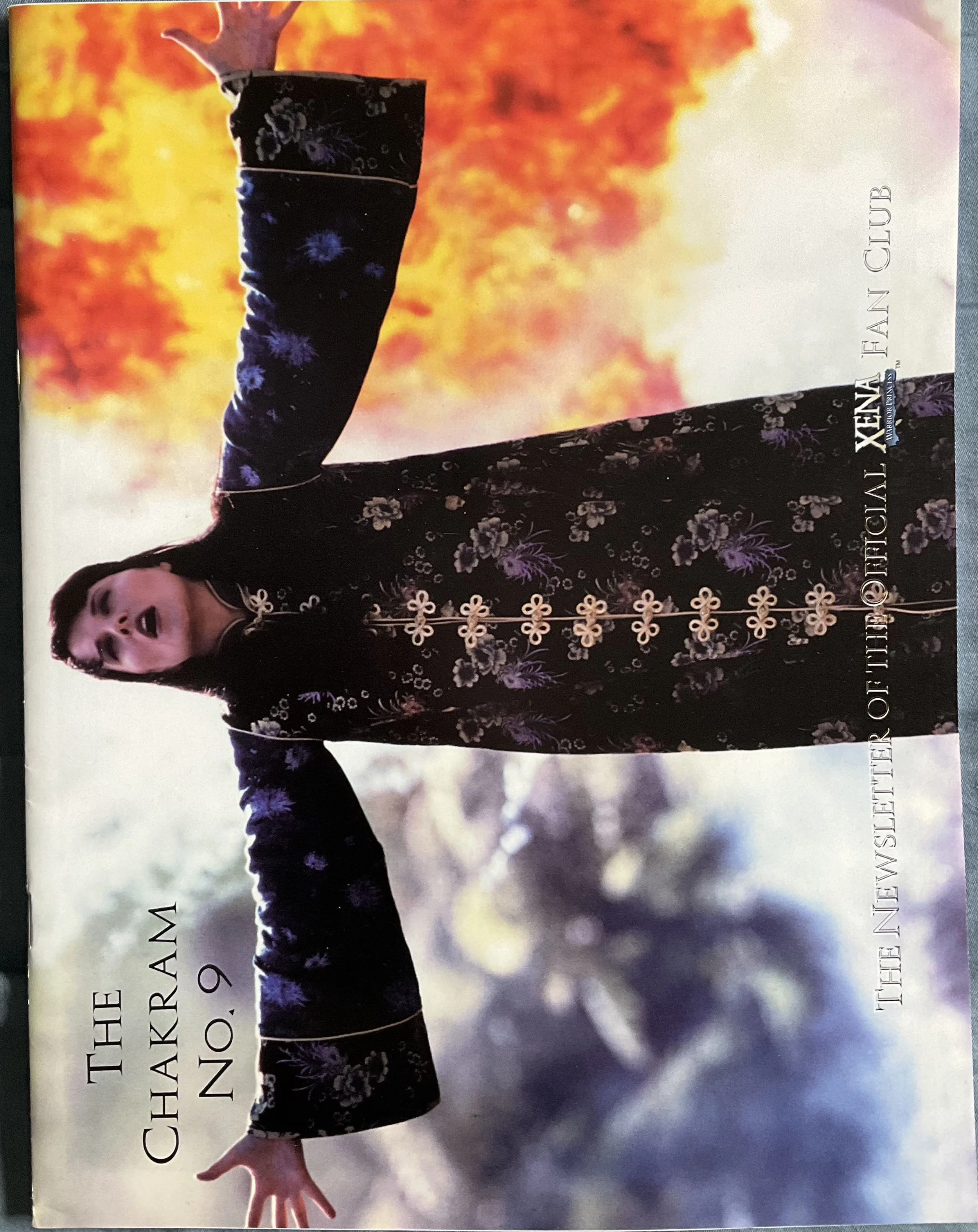Chloe Smith
New Zealand producer
The Chakram Newsletter: Issue 09
SD: What does your job encompass?
Chloe: I’m called the New Zealand producer, so I don't have any relationship with the American side of things. I don’t have dialogue with the writers or the post production team. That is what Eric Gruendemann does.
In a broad stroke, I am responsible for helping arrive at the series' budget and maintaining the New Zealand end of it from a financial point of view. I'm responsible for overseeing the crewing of the shows, the performance of the crew and making sure the schedules happen on time. It’s a mixture of putting things conceptually into place and then managing it to its conclusion.
SD: When the show takes place in other countries as it did recently when Xena and Gabrielle went to India, does that raise any special challenges? This meant a whole new environment, new costumes and you had to show a different population.
Chloe: Conceptually it did because we’re not in India. But that all comes down to the work of the production designer, Robert Gillies, and the costumer, Ngila Dickson.
We take existing structures and restyle them and we’re always making new costumes.
SD: In Hollywood studios, they have wardrobes filled with costumes and you can walk over to the era or country you’re working with and pick them out. You make most everything from scratch, don’t you?
Chloe: Pretty much. We dress the extras out of stock and some small part players.
SD: How about the extras to show that you’re in a different country?
Chloe: That’s handled by Tracy Hampton. The problem with extras across the board is that people have lives and jobs. Just because you fit the description of someone we'd like to use doesn’t mean you’re available to come and be an extra. It's not only finding the resource, but also the people who are able to take part in the show.
SD: One of the first things I said to Rob Gillies when I interviewed him was that a lot of fans thought some of the footage must have been shot in India because it looked so authentic.
Chloe: It did look authentic. In this instance, you work with a generic sense of a place. The images you see through the media of India are of bright colors and many people. And you can put that into quite a small space.
SD: Xena is usually very green and brown and only small groups of people.
Chloe: Right. If you were doing a show set in Africa, put a lion in the background. It immediately gives the viewer a reference point as to location.
SD: I talked with Renee about her directing experience and she was very touched by your note of support.
Chloe: She did a good job. It’s a double-edged sword, in my opinion, to be given a directing assignment that you also have to perform in. And I think, even for people such as Michael Hurst and Bruce Campbell who have done it a number of times, you can’t deny there's an extra component of energy that goes into it.
But she was extremely organized in pre-production. Extremely thorough. And if she had any nerves on the day, they were absolutely not evident. She seemed very calm.
I haven't actually said to her yet, “Renee would you do it again?” I haven't asked her that question. (laughing) But I’m sure she would.
SD: She said it was the most vulnerable and terrifying thing to do and yet the most satisfying. Something she’s wanted to do for a long time.
Chloe: There’s also the fact that nobody understands anyone else’s job unless you’ve done it. I think, for Renee, it was interesting for her to be on the other side of the camera. I think it would be true to say she gained a better awareness of what the machine is and how big the machine is and how you need to feed it. Which is completely separate from the actor’s job of learning your lines and turning up prepared to go on and do the day’s work.
SD: Visiting all the different departments the way I have for the past couple weeks, the most fascinating thing for me has been how many minds are at work and how interactive the process is.
Chloe: In terms of what I do, it’s inappropriate to discuss what I do without acknowledging what everybody else does. I'm the top of the triangle in a sense and underneath me I’ve got two fantastic production managers, a cast coordinator, a schedule coordinator and a production controller. We work closely side by side. And underneath those people there are the production assistants. It’s really important to me that people understand the contributions of all the people behind the scenes who help make the show run as smoothly as it does.
